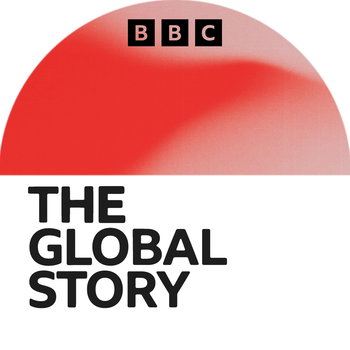
Maurice Merleau-Ponty
Loading player...
Melvyn Bragg and guests discuss the French philosopher Maurice Merleau-Ponty (1908-1961), who was part of the movement known as phenomenology. While less well-known than his contemporaries Jean-Paul Sartre and Simone de Beauvoir, his popularity has increased among philosophers in recent years. Merleau-Ponty rejected Rene Descartes’ division between body and mind, arguing that the way we perceive the world around us cannot be separated from our experience of inhabiting a physical body. Merleau-Ponty was interested in the down-to-earth question of what it is actually like to live in the world. While performing actions as simple as brushing our teeth or patting a dog, we shape the world and, in turn, the world shapes us.
With
Komarine Romdenh-Romluc
Senior Lecturer in Philosophy at the University of Sheffield
Thomas Baldwin
Emeritus Professor of Philosophy at the University of York
And
Timothy Mooney
Associate Professor of Philosophy at University College, Dublin
Produced by Eliane Glaser
Reading list:
Peter Antich, Motivation and the Primacy of Perception: Merleau-Ponty’s Phenomenology of
Knowledge (Ohio University Press, 2021)
Dimitris Apostolopoulos, Merleau-Ponty’s Phenomenology of Language (Rowman and Littlefield, 2019)
Sarah Bakewell, At the Existentialist Café: Freedom, Being and Apricot Cocktails (Chatto and Windus, 2016)
Thomas Baldwin (ed.), Maurice Merleau-Ponty: Basic Writings (Routledge, 2004)
Thomas Baldwin (ed.), Reading Merleau-Ponty (Routledge, 2007)
Renaud Barbaras (trans. Ted Toadvine and Leonard Lawlor), The Being of the Phenomenon: Merleau-Ponty’s Ontology (Indiana University Press, 2004).
Anya Daly, Merleau-Ponty and the Ethics of Intersubjectivity (Palgrave Macmillan, 2016)
M. C. Dillon, Merleau-Ponty’s Ontology (Northwestern University Press, 1998, 2nd ed.)
Maurice Merleau-Ponty (trans. Alden L. Fisher), The Structure of Behavior (first published 1942; Beacon Press, 1976)
Maurice Merleau-Ponty (trans. Donald Landes), Phenomenology of Perception (first published 1945; Routledge, 2011)
Maurice Merleau-Ponty, Sense and Non-Sense (first published 1948; Northwestern University Press, 1964)
Maurice Merleau-Ponty, Signs (first published 1960; Northwestern University Press, 1964)
Maurice Merleau-Ponty, The Visible and the Invisible (first published 1964; Northwestern University Press, 1968)
Maurice Merleau-Ponty (trans. Oliver Davis with an introduction by Thomas Baldwin), The World of Perception (Routledge, 2008)
Ariane Mildenberg (ed.), Understanding Merleau-Ponty, Understanding Modernism (Bloomsbury, 2019)
Timothy Mooney, Merleau-Ponty’s Phenomenology of Perception: On the Body Informed
(Cambridge University Press, 2023)
Katherine J. Morris, Starting with Merleau-Ponty (Continuum, 2012)
Komarine Romdenh-Romluc, Merleau-Ponty and Phenomenology of Perception (Routledge, 2011)
Komarine Romdenh-Romluc, The Routledge Guidebook to Merleau-Ponty’s Phenomenology of Perception (Routledge, 2011)
Jean-Paul Sartre (trans. Benita Eisler), Situations (Hamish Hamilton, 1965)
Hilary Spurling, The Girl from the Fiction Department (Penguin, 2003)
Jon Stewart (ed.), The Debate Between Sartre and Merleau-Ponty (Northwestern University Press, 1998)
Ted Toadvine, Merleau-Ponty’s Philosophy of Nature (Northwestern University
Press, 2009)
Kerry Whiteside, Merleau-Ponty and the Foundation of an Existential Politics (Princeton University Press, 1988)
Iris Marion Young, On Female Body Experience: “Throwing Like a Girl” and Other Essays (Oxford University Press, 2005)
In Our Time is a BBC Studios Audio Production
With
Komarine Romdenh-Romluc
Senior Lecturer in Philosophy at the University of Sheffield
Thomas Baldwin
Emeritus Professor of Philosophy at the University of York
And
Timothy Mooney
Associate Professor of Philosophy at University College, Dublin
Produced by Eliane Glaser
Reading list:
Peter Antich, Motivation and the Primacy of Perception: Merleau-Ponty’s Phenomenology of
Knowledge (Ohio University Press, 2021)
Dimitris Apostolopoulos, Merleau-Ponty’s Phenomenology of Language (Rowman and Littlefield, 2019)
Sarah Bakewell, At the Existentialist Café: Freedom, Being and Apricot Cocktails (Chatto and Windus, 2016)
Thomas Baldwin (ed.), Maurice Merleau-Ponty: Basic Writings (Routledge, 2004)
Thomas Baldwin (ed.), Reading Merleau-Ponty (Routledge, 2007)
Renaud Barbaras (trans. Ted Toadvine and Leonard Lawlor), The Being of the Phenomenon: Merleau-Ponty’s Ontology (Indiana University Press, 2004).
Anya Daly, Merleau-Ponty and the Ethics of Intersubjectivity (Palgrave Macmillan, 2016)
M. C. Dillon, Merleau-Ponty’s Ontology (Northwestern University Press, 1998, 2nd ed.)
Maurice Merleau-Ponty (trans. Alden L. Fisher), The Structure of Behavior (first published 1942; Beacon Press, 1976)
Maurice Merleau-Ponty (trans. Donald Landes), Phenomenology of Perception (first published 1945; Routledge, 2011)
Maurice Merleau-Ponty, Sense and Non-Sense (first published 1948; Northwestern University Press, 1964)
Maurice Merleau-Ponty, Signs (first published 1960; Northwestern University Press, 1964)
Maurice Merleau-Ponty, The Visible and the Invisible (first published 1964; Northwestern University Press, 1968)
Maurice Merleau-Ponty (trans. Oliver Davis with an introduction by Thomas Baldwin), The World of Perception (Routledge, 2008)
Ariane Mildenberg (ed.), Understanding Merleau-Ponty, Understanding Modernism (Bloomsbury, 2019)
Timothy Mooney, Merleau-Ponty’s Phenomenology of Perception: On the Body Informed
(Cambridge University Press, 2023)
Katherine J. Morris, Starting with Merleau-Ponty (Continuum, 2012)
Komarine Romdenh-Romluc, Merleau-Ponty and Phenomenology of Perception (Routledge, 2011)
Komarine Romdenh-Romluc, The Routledge Guidebook to Merleau-Ponty’s Phenomenology of Perception (Routledge, 2011)
Jean-Paul Sartre (trans. Benita Eisler), Situations (Hamish Hamilton, 1965)
Hilary Spurling, The Girl from the Fiction Department (Penguin, 2003)
Jon Stewart (ed.), The Debate Between Sartre and Merleau-Ponty (Northwestern University Press, 1998)
Ted Toadvine, Merleau-Ponty’s Philosophy of Nature (Northwestern University
Press, 2009)
Kerry Whiteside, Merleau-Ponty and the Foundation of an Existential Politics (Princeton University Press, 1988)
Iris Marion Young, On Female Body Experience: “Throwing Like a Girl” and Other Essays (Oxford University Press, 2005)
In Our Time is a BBC Studios Audio Production


